
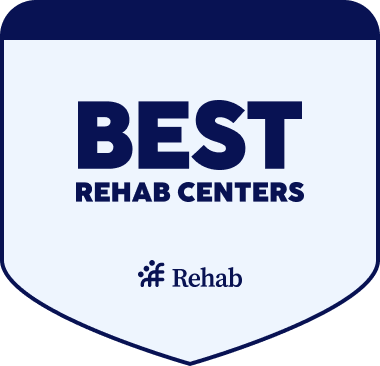
Why Rehab Aftercare Programs are Important for Sobriety
Recovery doesn’t end when rehab does. This guide breaks down how addiction aftercare, like ongoing counseling, support groups, and structured programs, helps you protect your sobriety long after treatment, and how to find the best addiction aftercare programs for your needs. Discover what to expect from aftercare so you can build a long-term recovery plan that fits your life.
Best Drug Rehabs With Aftercare Programs
| Name / Address / Rating | Description | Treatments / Payments / Programs | Review / Contact | Images |
|---|---|---|---|---|
Cave Creek, AZ 1
Top 10 in Aftercare Support
Rehab Score
Our Rehab Score is designed to make it easier for you to find the best treatment centers. We combine overall ratings with recent feedback to create a score that reflects a center’s quality right now.
8.90 / 10 | Soberman’s Estate, located in Cave Creek, Arizona, is an alcohol and drug rehab center that provides addiction treatment services to adult men, professionals, and public figures. They are a discrete, luxury rehab for individuals aged 30 to 80 years old. This location caps their treatment center at ten men at a time. Soberman’s Estate focuses on | Treatments Programs Payment Options | Soberman’s Estate was everything I needed for my recovery. The staff, the program, physical activity and culinary experience were top notch and essential. The program is well designed and worked better than I expected. The staff is remarkable – professional, considerate and genuinely caring. My time there and being removed from alcohol for five weeks was everything I needed to remove my craving for alcohol. Soberman has changed my life in ways I never could have imagined. I feel confident, secure and grateful for my new life. I have reconnected with my family and friends. Thank you Soberman.
George B.
3 months ago
Yes, very professional staff, treatment, therapist, chefs were good! even the home cook did the best she could, and loved the horses of Course! Saturday morning hiking was fun to explore the trails of the nearby mountain area!
John E Williams
3 months ago
I had a great experience overall and would recommend it to anyone wanted to jump start their sobriety!!
Kevin Crawford
3 months ago
| 
5 5 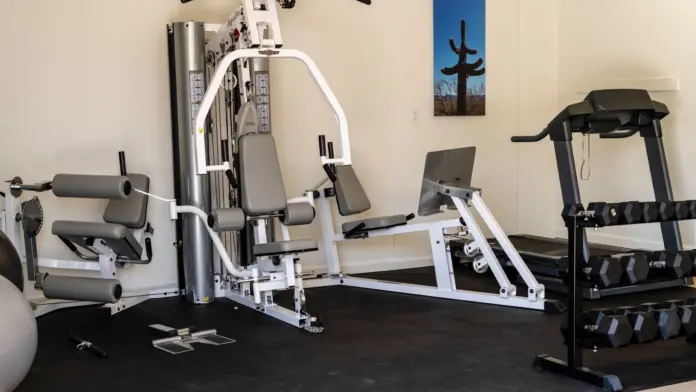



|
Clarksville, IN | Avenues Recovery Center in Clarksville, Indiana, is an inpatient drug and alcohol detox and rehab center. They strive to provide individuals receiving treatment with a loving environment and attentive medical care. You’ll be away from toxic environments and triggers and have the opportunity to focus on developing life skills that will support you | Treatments Programs Payment Options | Avenues is truly amazing. I couldn’t ask for better people to help me start my journey. I’m so grateful for all of you!
Tarrah
1 week ago
Katina is the most thoughtfulness and know and woman everI I love her so much
Shelley McBride
1 week ago
This place although only 30 days has changed my life. The staff is the most understanding group of people I’ve experienced in recovery. If you need and want help I suggest you go to Avenues.
Teresa Lee
1 week ago
| 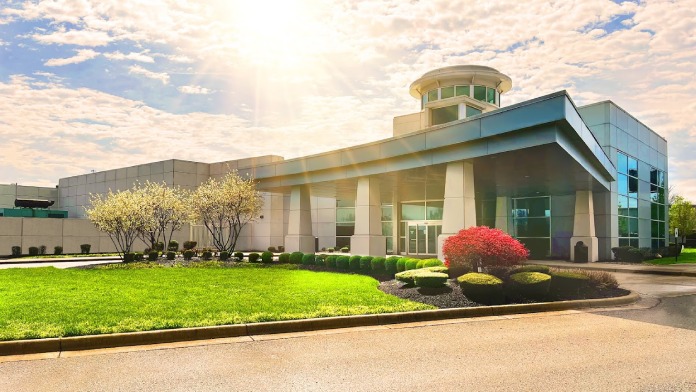
4 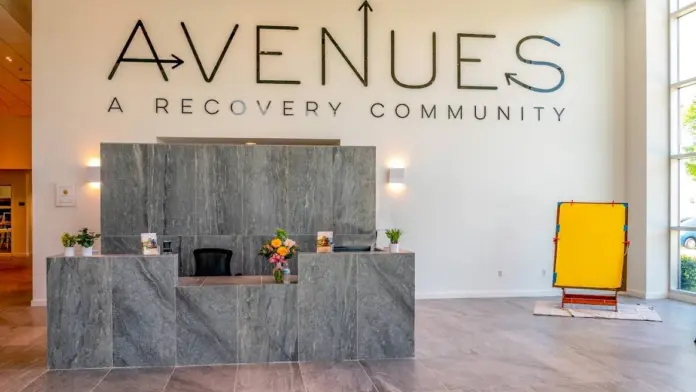
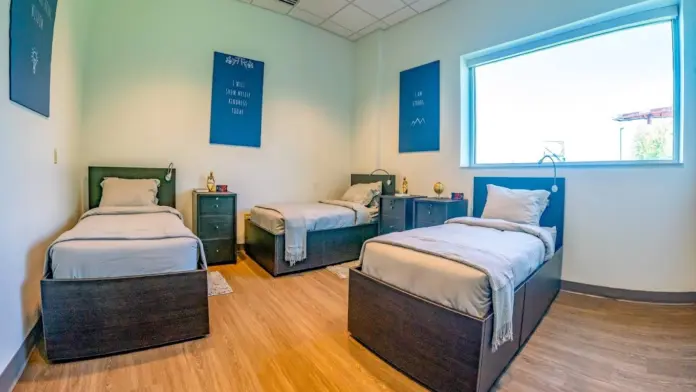
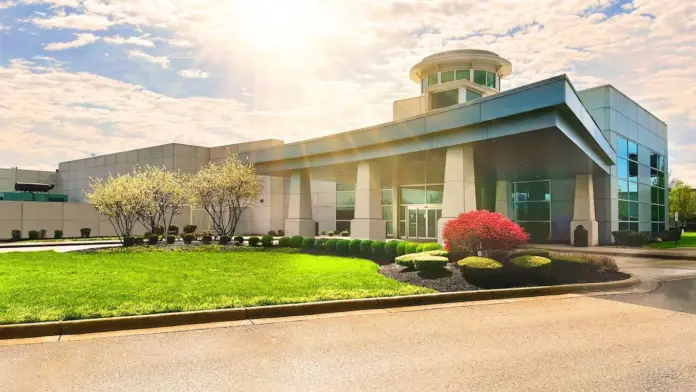
|
Simi Valley, CA 2
Top 10 in Aftercare Support
Rehab Score
Our Rehab Score is designed to make it easier for you to find the best treatment centers. We combine overall ratings with recent feedback to create a score that reflects a center’s quality right now.
8.80 / 10 | All In Solutions Detox in Simi Valley is one of the best ranked inpatient detox facilities in California providing safe, medically supervised care for individuals beginning their recovery from drug or alcohol addiction. As part of the All In Solutions Behavioral Health network, this facility serves as the first step in a full continuum of care. Cli | Treatments Programs Payment Options | This place saved my life. Great facility and staff. I was very nervous/scared to come here but the staff were very friendly and helpful. If you are thinking about treatment I highly recommend this place.
xCochise
2 weeks ago
This program dramatically help me get back on track in my recovery and was very well staffed and organized was an amazing experience.
Jacob Berghaus
3 weeks ago
I recommend calling the facility to confirm what the sales team tells you is true. The staff facility and people are great.
Amanda Cortes
4 weeks ago
| 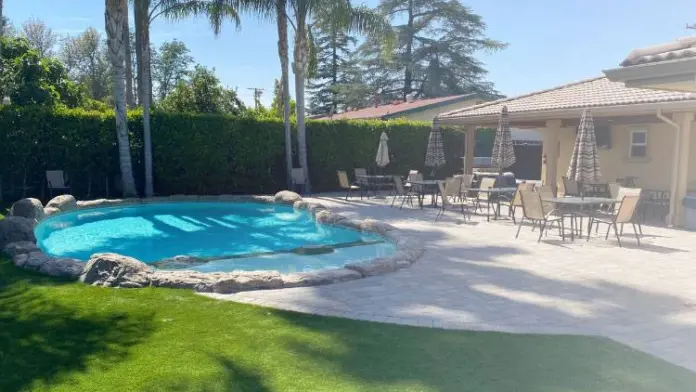
5 5 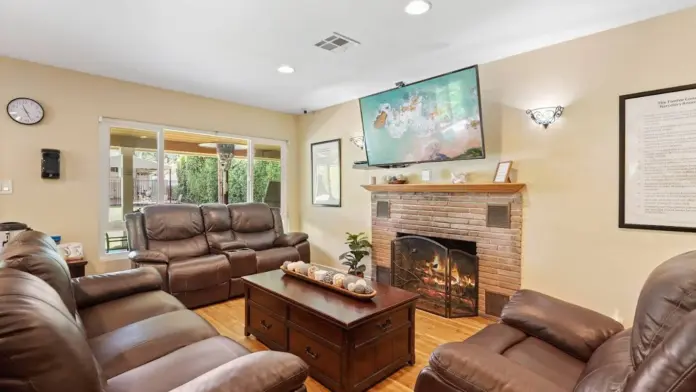

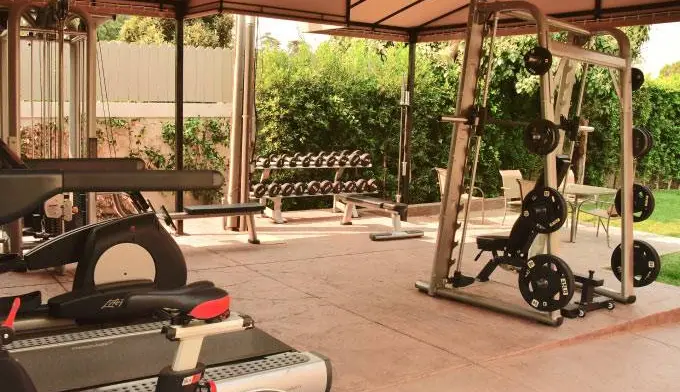
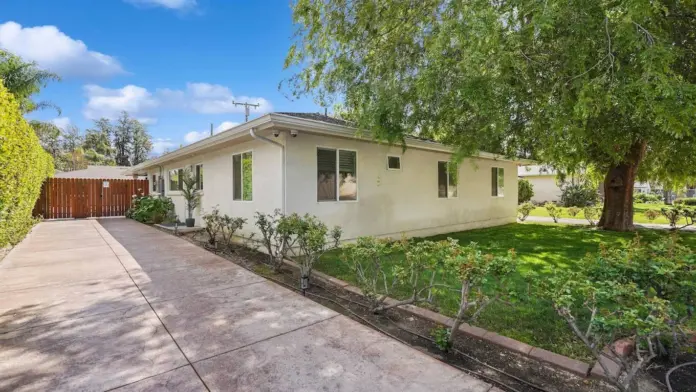
|
Hurst, TX 3
Top 10 in Aftercare Support
Rehab Score
Our Rehab Score is designed to make it easier for you to find the best treatment centers. We combine overall ratings with recent feedback to create a score that reflects a center’s quality right now.
8.80 / 10 | Symetria – Hurst Outpatient Rehab and Suboxone Clinic in Hurst, Texas, is a private drug rehabilitation clinic for adults. One of the best outpatient rehab centers in Texas, Symetria offers various withdrawal medications to help clients get started with their recovery journey. You’ll also have access to treatments such as the intensive outp | Treatments Programs Payment Options | Symetria is unbelievably amazing!!! The Hurst staff is phenomenal!!! I can’t imagine that another location has a better staff. A special shout out to Deborah, Benjamin, and Samantha of course. You all are doing amazing, amazing, selfless work. You all are very special to so many!!!
Vernon Godsey III
3 months ago
Huge shout out to the team at symetria who make me feel like family I appreciate everything they do and huge shout out to Osagie for helping me! He is AWESOME!!! I love you symetria❤️❤️❤️
Chloe Roseman
3 months ago
BEST PLACE EVER. I have tried various other doctors/clinics and none of them even begin to compare to this one. The staff here is absolutely amazing. I can’t even make a single complaint. Dr Son is the best as well. He explains everything and you truly feel like he understands you. I can proudly say this, this place saved my life. If you or someone you know needs help getting off opiates do it right the first time and come here. You won’t be disappointed. If you are specifically struggling with fentanyl please don’t waste your time with other ways. I have tried 6 other methods from lazer therapy to having the earpiece to suboxone. Methadone is the key to our current fentanyl crisis. This clinic makes recovery possible again!
Mason
4 months ago
| 
5 5 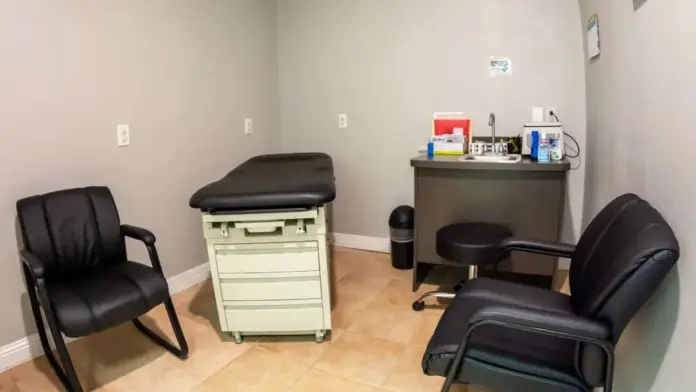
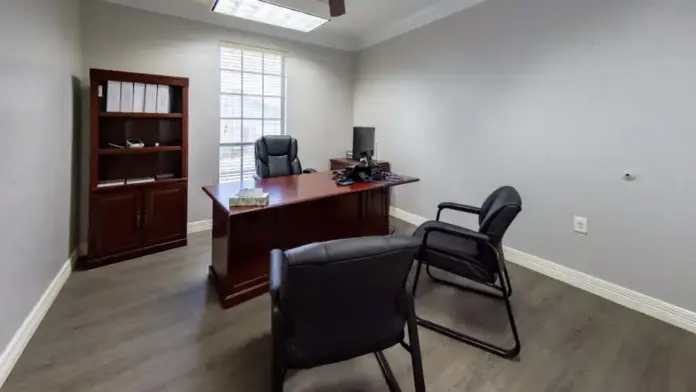
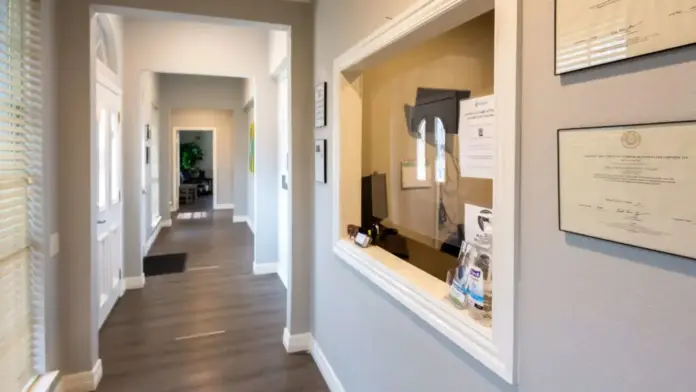
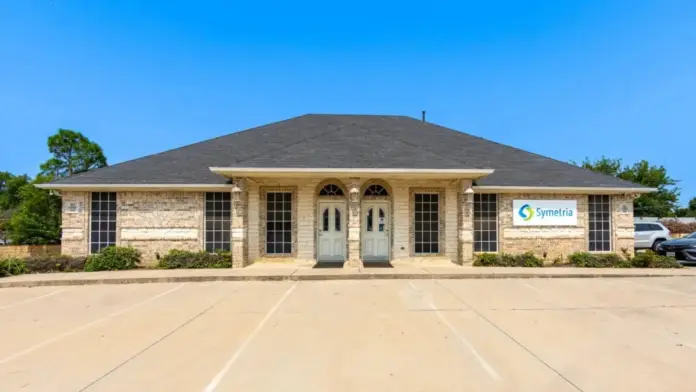
|
Boynton Beach, FL 4
Top 10 in Aftercare Support
Rehab Score
Our Rehab Score is designed to make it easier for you to find the best treatment centers. We combine overall ratings with recent feedback to create a score that reflects a center’s quality right now.
8.80 / 10 | All In Solutions Counseling Center is a mental health center and addiction treatment program in Boynton Beach, Florida. They provide a partial hospitalization program, an intensive outpatient program (IOP), an outpatient program, medication-assisted treatment, and mental health care for adults with substance use disorder. All In Solutions Counseli | Treatments Programs Payment Options | All In Solutions received me with open arms for the second time. The staff make sure you receive a high quality care treatment. I’m grateful for the love and care . God continue to bless everyone.Thank you for you do .
Jianil Richiez
3 days ago
This place changed my life. My therapist was great and all the staff was great.
Ash Leigh
1 week ago
My time at All in Solutions has been the most valuable important decision I’ve ever made. I have nothing but love and respect and gratitude to all the staff who helped guide me to a freedom I thought I could never have!!! I love you guys from the depths of my soul!!! Thank you Thank you Thank you!!!!
Ben Rhea
2 weeks ago
| 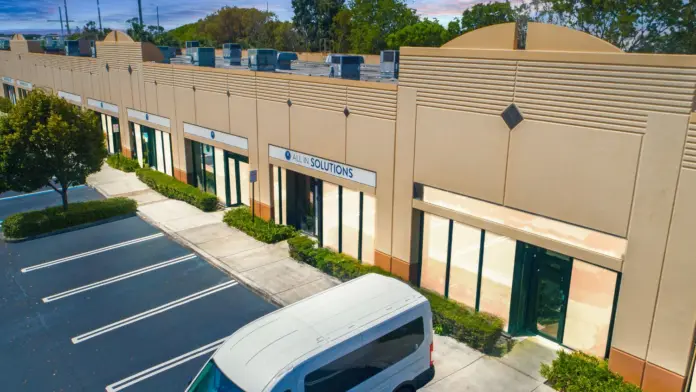
4 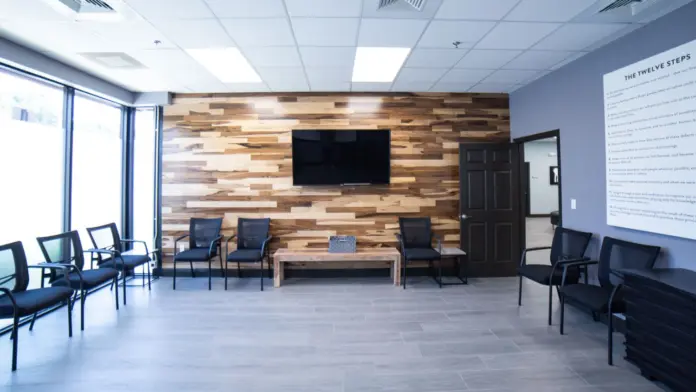
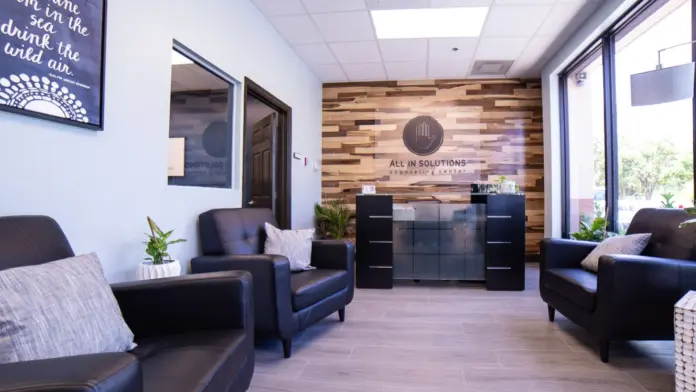
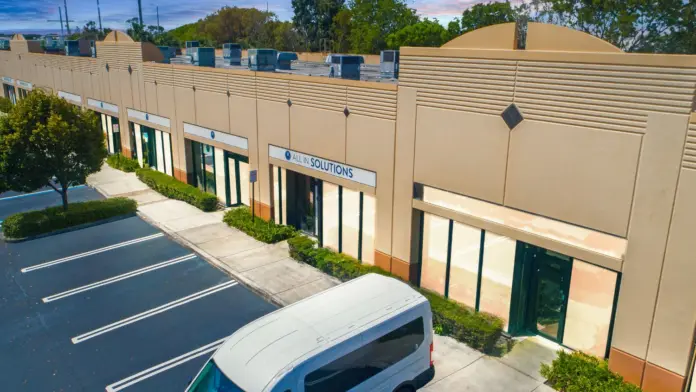
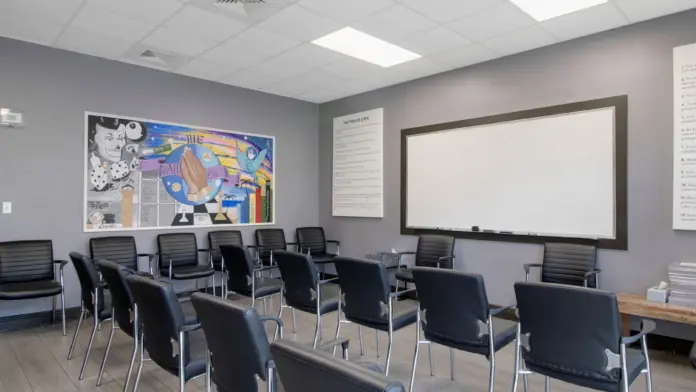
|
Galloway, NJ 5
Top 10 in Aftercare Support
Rehab Score
Our Rehab Score is designed to make it easier for you to find the best treatment centers. We combine overall ratings with recent feedback to create a score that reflects a center’s quality right now.
8.80 / 10 | Boca Recovery Center – Galloway is a drug and alcohol rehab in Galloway, NJ. They provide inpatient addiction treatment and medical detox. Boca Recovery’s New Jersey Drug & Alcohol Rehab, located in Galloway, New Jersey offers residential addiction treatment, medical detox, and medication-assisted treatment in an immersive treatment s | Treatments Programs Payment Options | My sobriety journey started at Boca. The staff members including Miss Tracey, Hannah and Kevin their alumni coordinator have completely flipped the trajectory of my life. I was immediately taken in with open caring arms and they made my detox process as comfortable as possible. During my stay, Joe was extremely helpful in helping me slowly gain my appetite back and start to feel stronger and was so attentive to my nutritional health. Nurse Patrick was so kind to me during my intake and Kevin still reaches out to me very often to check in and is so helpful in my recovery process. I owe gaining my life, my strength and my family back to Boca and I am eternally grateful❤️
Rianna Dean
2 weeks ago
Great facility with even greater staff. One of the best rehab/detox in South, NJ.
Donna Kratzer
3 weeks ago
Very comfortable stay
Will
3 weeks ago
| 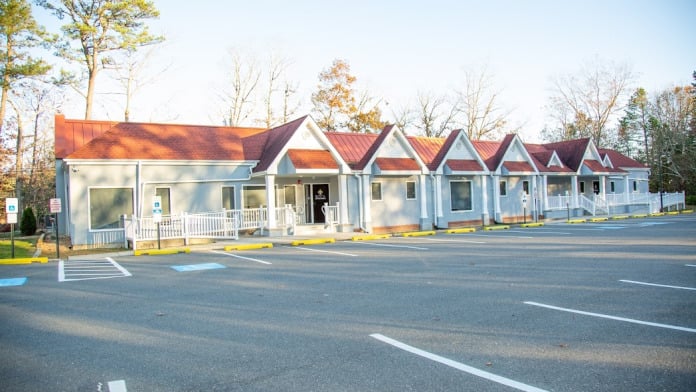
7 7 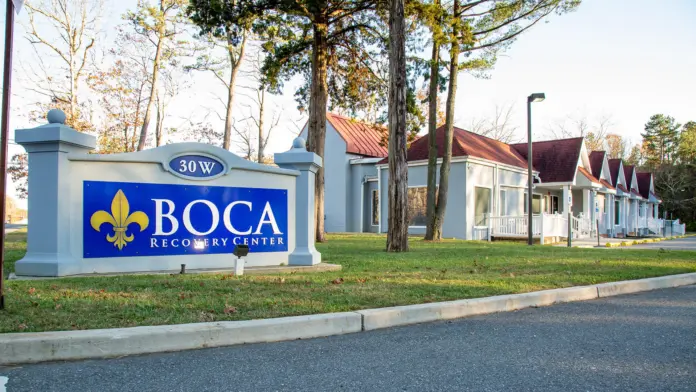
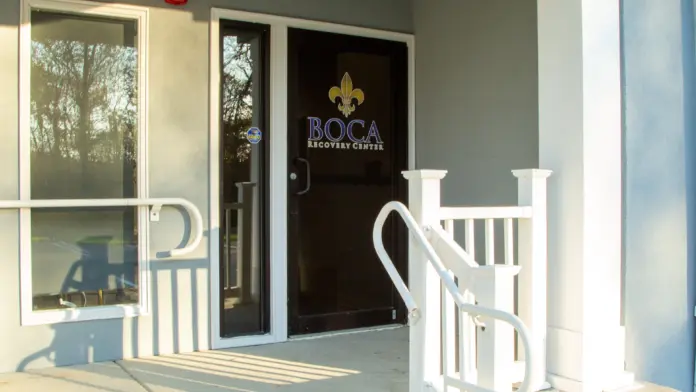
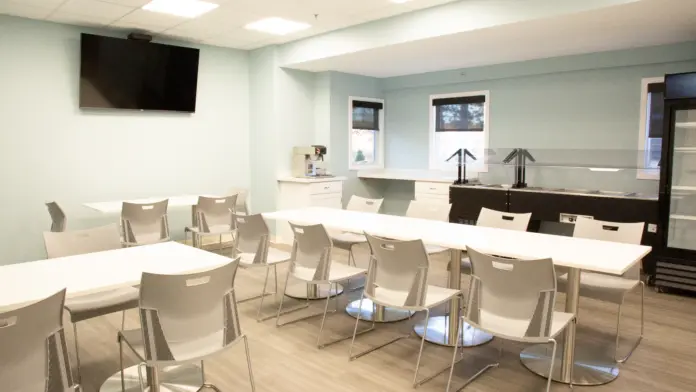
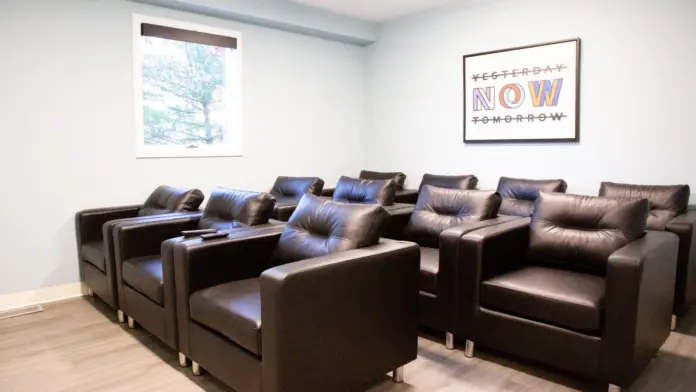
|
Bloomington, IN | The Boca Recovery Center is a luxury alcohol and drug rehab center for adults in Bloomington, Indiana. They specialize in cutting edge addiction treatment provided in a residential setting. One unique part of this alcohol and drug rehab in Indiana is the peaceful, secluded setting. If recovering in a clinical hospital setting doesn’t sound very a | Treatments Programs Payment Options | This place damn near saved my life. Staff is amazing and care almost on a personal level. Nurses are knowledgeable and groups are interactive informative and inclusive
V Montez
5 days ago
Boca recovery was a magical experience during a very difficult time that will always hold a special place in my heart. From top to bottom, the support of staff is second to none.
Tyler and Carrie, Carter, Alexx, Ashley, Brooke, Michelle, Meagan, and the rest of the techs are phenomenal. My therapist January opened my eyes to perspectives I had been missing my entire life and Justin the case manager worked tirelessly from the start all the way until his wife gave birth on my last day to make sure I was set up for success.
The nurses are amazing and the medical attention someone needs during this portion of their recovery is 110% offered around the clock.
The place has everything you need from a gym to recreational activities, spacious beds with luxury amenities. And one cannot go without mentioning the chef, Tim. You won’t find better “rehab food” and conversation.
I owe a thank you to the director John for his efforts to get me into a great program after my stay was over.
To anyone struggling with with mental health and/or addiction, I cannot shout praises loud enough for what this program has to offer each and every client that walks through those doors.
If you want a way out, there’s no better place to check in.
Alex K
3 weeks ago
My name is Derick Caldwell and I had a good time there I learned a lot there the staff was amazing especially the techs and the clients they help me get through my depression and sadness just wanted to say Thanks…I forgot the food was right on time also 😁
James Sander
3 weeks ago
| 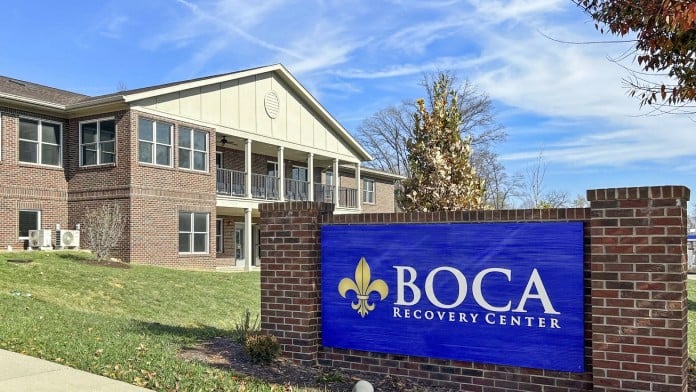
6 6 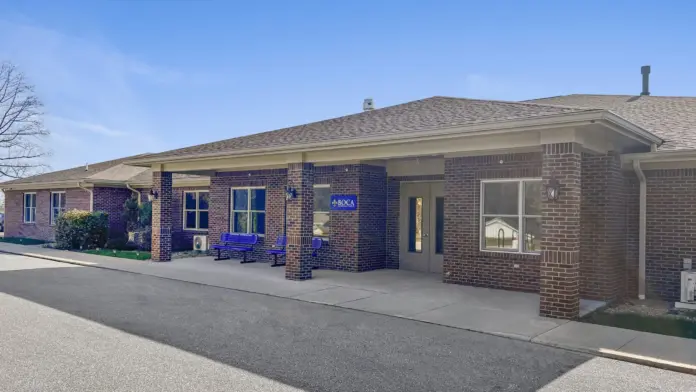
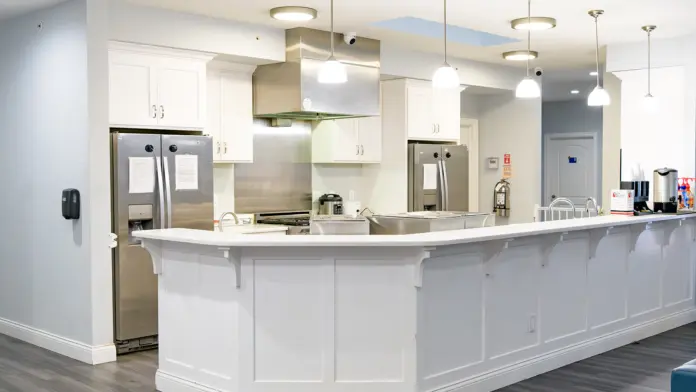
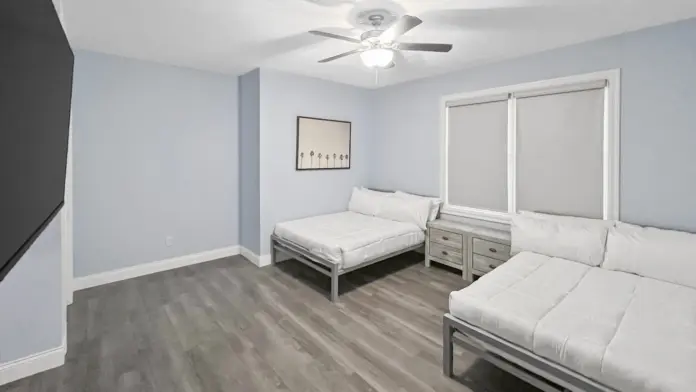
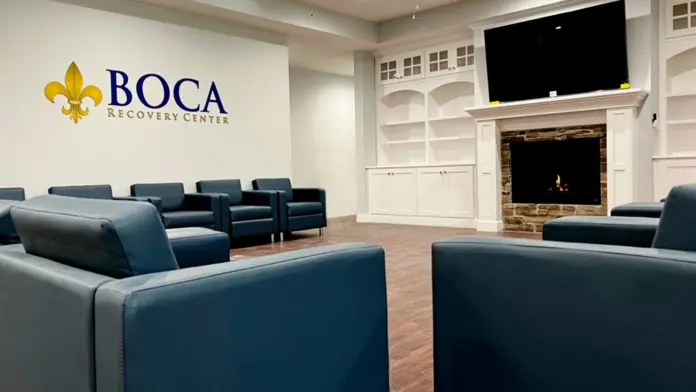
|
Woodbury, TN 6
Top 10 in Aftercare Support
Rehab Score
Our Rehab Score is designed to make it easier for you to find the best treatment centers. We combine overall ratings with recent feedback to create a score that reflects a center’s quality right now.
8.77 / 10 | If you’re looking for a Christian-based men’s drug rehab center, S2L Recovery in Woodbury, Tennessee, might be the place for you or your loved one. Located at the top of Short Mountain, and overlooking the green hills of Middle Tennessee, this residential and detox clinic boasts a one-to-one staff/patient ratio so there’ll always be someone t | Treatments Programs Payment Options | Coming from Canada, I was hesitant. But God knew that S2L was exactly where I needed to be. At 64 years of age, I was able to discover my true identity, purpose, and mission in Christ. They help you in trying to get clean and sober for sure. But what S2L and the staff are all about is the Gospel of Jesus Christ. That’s why it is so successful.
TIM TANNER
3 months ago
I’ve had the privilege of seeing the life-changing impact this ministry has on countless men & I can’t recommend it highly enough! God has His Hand on this ministry & I’m honored to see the Lord work in these men!
Hunter Stanfield
3 months ago
Come here with a open mind and heart. It can and WILL change your life in all ways. Trust the process and trust God! Could go on and on about how amazing this place, I’ll forever be grateful!
Trevor Woodard
3 months ago
| 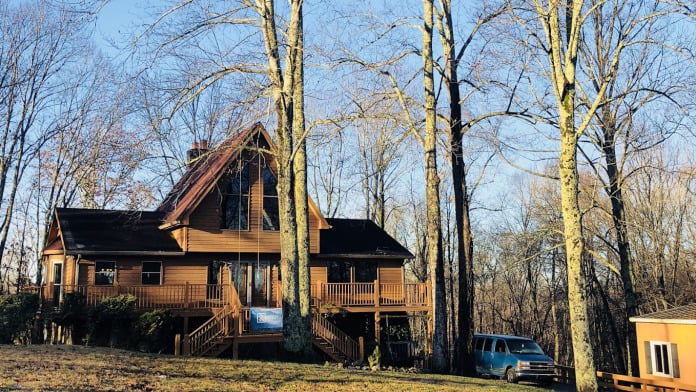
6 6 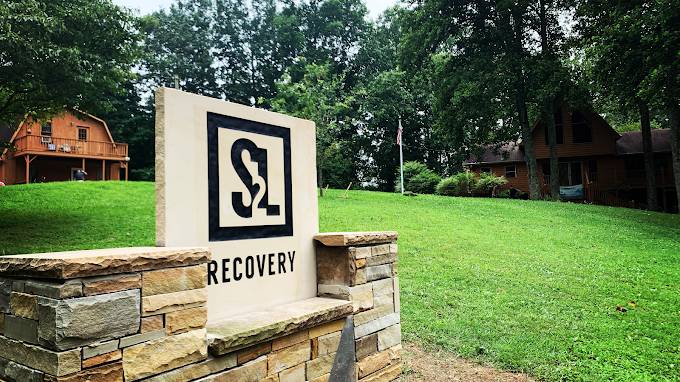

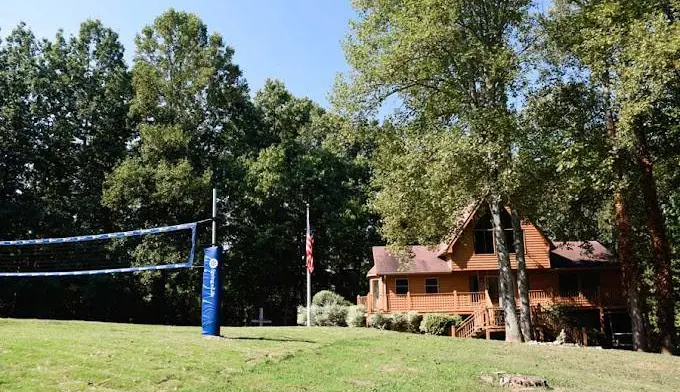

|
Levittown, PA 7
Top 10 in Aftercare Support
Rehab Score
Our Rehab Score is designed to make it easier for you to find the best treatment centers. We combine overall ratings with recent feedback to create a score that reflects a center’s quality right now.
8.76 / 10 | The Steps To Recovery addiction treatment center is situated in Levittown, Pennsylvania. At this drug rehab center, patients can expect to engage in a unique treatment approach that focuses on helping individuals recover through authenticity, intimacy, community connection, and transparency. Steps to Recovery offers a serene and private environ | Treatments Programs Payment Options | Good place, great housing
Nicole Rivera
2 months ago
Amazing support network and great staff lovely time with my stay at STR buck
William Perry
2 months ago
My experience at Steps to Recovery has been great for the most part, the people and the environment are very welcoming and comforting. I have had some issues that have come up, but they usually get resolved. My only main gripe is with some of the other clients at the community living house fail to clean up after themselves, and some do not know self control. But, the staff here is very professional and easy to talk to. I find that the opportunities here for my recovery journey are pretty good, although I’d like access to more holistic therapy resources. I’ve actually personally facilitated a Dharma meeting and will facilitate more in the future. I appreciate my time here at STR and am excited for the future with them.
Jerry Davis
3 months ago
| 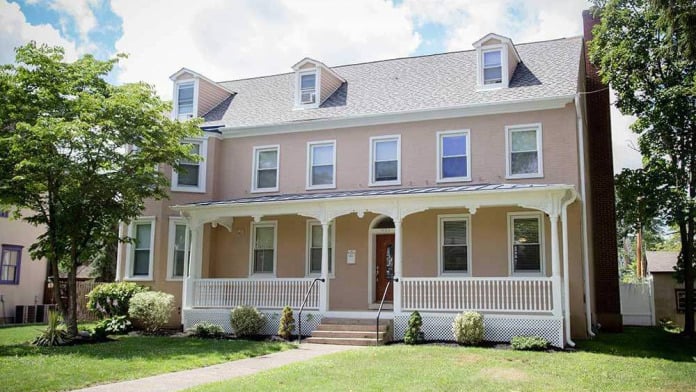
6 6 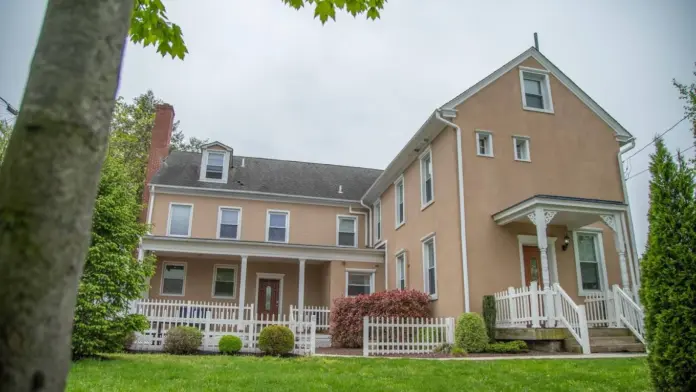
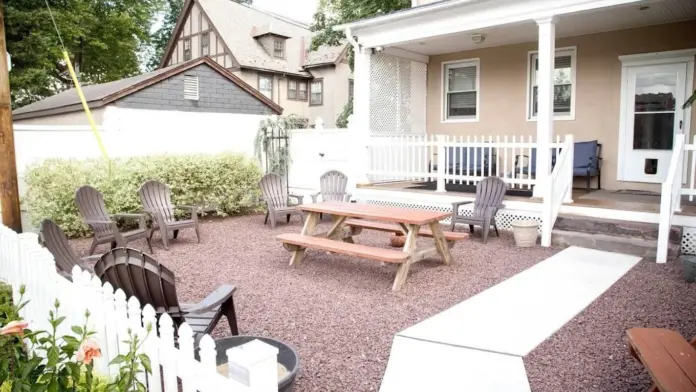
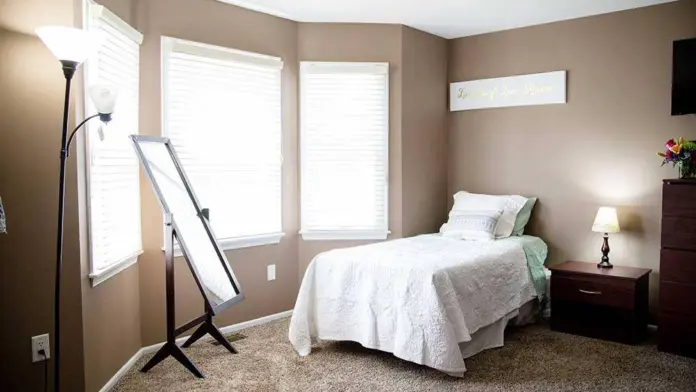

|
Watsonville, CA 8
Top 10 in Aftercare Support
Rehab Score
Our Rehab Score is designed to make it easier for you to find the best treatment centers. We combine overall ratings with recent feedback to create a score that reflects a center’s quality right now.
8.76 / 10 | Located in Watsonville, California, Elevate Addiction Services provides alcohol and drug rehab services to men and women suffering from addiction. Their levels of care include detox, inpatient treatment, and outpatient treatment. One of the best ranked Outpatient treatment centers in California, Elevate Addiction Services provides a wide continuum | Treatments Programs Payment Options | I have been through other treatment facilities in the past; but Elevate has by far been the best experience I could’ve hoped for. Recovery isn’t just the ability to abstain from substances, but the capability of transforming from within. Not only has Elevate help me appreciate the things within me but everything around me as well. Thank you, Elevate for changing the trajectory of my life and my marriage!!
Michael Amodeo
4 weeks ago
Great place. The staff super nice amd very knowedgable about addictions. Its a very special place. Better than all others ive gone to. Definate thumbs up
Tyler Kerney
1 month ago
Our experience with Elevate Addiction Services has been truly life-changing. From the very beginning, the director, family liaisons, counselors, therapists, continuing care coordinators, house dad’s – we felt genuine compassion and care from everyone we had the pleasure of interacting with. We were kept informed of how our son was doing every step of the way. It never felt like we were alone in this. Everyone at Elevate was fighting for our son right alongside of us.
The love and compassion shown to our son meant everything. Today, he is living clean & sober, feeling confident in the tools and foundation Elevate equipped him with. Elevate welcomed him with open arms. Watching him complete the program and graduate has been one of the proudest moments of our lives.
We are so deeply grateful for Elevate and the loving and compassionate professionals who work there.
Without hesitation, we would highly recommend Elevate Addiction Services to anyone seeking help for themselves or a loved one. They helped our son find his way back.❤️
Kenny & Shelly Wright
1 month ago
| 
5 5 
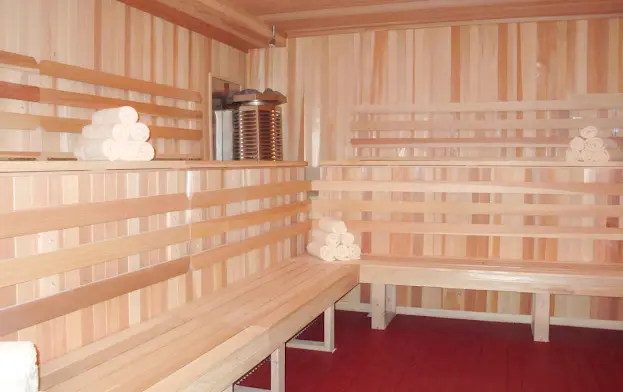
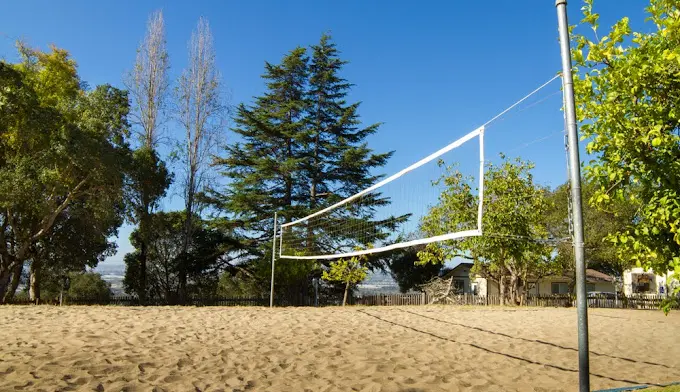

|

About Rehab Aftercare & Alumni Programs
About Rehab Aftercare & Alumni Programs
Rehab aftercare programs are essential for long term recovery from substance use disorders. After completing initial treatment, many people face triggers, stress and real life responsibilities that can lead to relapse without the right support.
This article explores what aftercare programs are, why they matter and how they improve overall quality of life. You’ll learn about the essential components of effective aftercare, common challenges faced post-treatment, and how to create a personalized plan for success.
Key Facts:
- Aftercare helps prevent relapse by providing ongoing support after treatment ends.
- Programs are highly personalized based on history, level of care, and personal needs.
- Key components include therapy, medication, peer groups, sober housing, and holistic wellness.
- Strong aftercare improves mental health, employment, and family relationships.
- Telehealth and mobile apps make aftercare accessible from anywhere.
- Alumni programs offer ongoing support, mentorship, and sober social connection.
What Are Rehab Aftercare Programs?
What Are Rehab Aftercare Programs?
An aftercare plan outlines the support systems and activities that will be implemented once you complete addiction treatment. These resources and interventions will help you cope with the challenges you’ll face, such as triggers, cravings, and stress.
There’s no such thing as a standard aftercare program; your exact plan will depend on your needs, the progress you make during recovery, the triggers you’ll face as you return to daily life, and more.
The plan will outline the steps you will take, the ongoing support your treatment center will provide, and any other crucial resources that need to be in place to help you maintain sobriety. This varies based on individual needs as well as the type of addiction treatment program you complete.
For example, someone who has had a substance use disorder for 20 years, has little family support, and just completed a 90-day inpatient rehab needs a different aftercare plan than someone who recently started abusing drugs and has a strong support network in place.
Typically, if you receive care at a higher intensity level (inpatient, partial hospitalization program, or intensive outpatient program), your aftercare plan will be more involved. In this situation, aftercare in recovery might include ongoing treatment in an outpatient setting or transition to a sober living home.
If you completed a standard outpatient program, your aftercare plan may include joining a 12-step support group and finding a counselor to provide continued therapeutic and social support.
The length of an aftercare plan also varies, again depending on personal needs and situation. Some forms of aftercare support last a few weeks or months, while others last for more than a year.
For most people, aftercare in recovery is recommended for at least one year. Sobriety isn’t a one-time achievement — it’s an ongoing process that, for many people, requires daily work. Your aftercare plan is likely to change over time as your sobriety continues.
Why Aftercare Matters for Long-Term Recovery
Why Aftercare Matters for Long-Term Recovery
The recovery journey from drug & alcohol addiction doesn’t end after treatment. Often, this is just the beginning, which makes aftercare in recovery extremely important.
Life after treatment can be complex and challenging. Adjusting to everyday life can be stressful, and it’s tempting to revert to old patterns. The risk of relapse is highest immediately after a person leaves drug rehab.
Experiencing relapse doesn’t mean that you failed. For many people, sobriety is a learning process, and it can take time to figure out what type of aftercare supports is the best fit for your needs.
Aftercare in recovery, also called continuing care, is designed to help prevent relapse. The goals of continued care are to keep you connected to support systems and prevent isolation.
Aftercare provides ongoing accountability during early recovery to reinforce the things you learned during treatment and help you achieve long-term sobriety.
Quality-of-Life Improvements Beyond Sobriety
Aftercare doesn’t just help people stay sober, it supports total life transformation. Individuals who engage in ongoing recovery support are more likely to gain stable employment and avoid legal trouble.
Research shows they also experience higher quality-of-life scores in mental health surveys, such as the SF-36 and WHOQOL-BREF. With time, many report stronger family relationships, better communication with loved ones, and increased confidence in their roles as parents or partners.
Core Components of an Effective Rehab Aftercare Plan
Core Components of an Effective Rehab Aftercare Plan
Your aftercare plan will be unique to your individual needs, and may include some of the components listed here.
Ongoing Individual & Group Therapy
Many people who are addicted to drugs and alcohol have experienced past trauma and mental health concerns. Weekly individual therapy can help you manage emotional triggers, address lingering trauma, and develop problem-solving skills.
Cognitive behavioral therapy (CBT) and dialectical behavioral therapy (DBT) sessions are common, with frequency tapering from weekly to monthly as stability increases.
Group therapy, especially relapse-prevention and processing groups, provides a sense of community and peer accountability. Virtual therapy options ensure continuity of care for those in remote or underserved areas.
Your inpatient or outpatient treatment care providers may work with you to set you up with a therapist who can meet your needs as a part of your aftercare plan.
Medication-Assisted Treatment & Medical Monitoring
Medication-assisted treatment (MAT) helps reduce cravings and prevent relapse for opioid and alcohol use disorders.
Common medications include buprenorphine, methadone, andextended-release naltrexone. These treatments often require medical monitoring, including routine laboratory work, pill counts, and prescription tracking via pharmacy lockboxes.
For clients with co-occurring conditions, integrated care ensures both mental and physical health needs are addressed simultaneously. Your doctor, therapist, and pharmacist may work together to develop a system that makes sense for supporting your sobriety while getting you the medication you need.
Peer-Support Groups (12-Step, SMART, Refuge)
Support groups are the backbone of many recovery journeys. Many people begin attending peer support groups while still in rehab, and find that continuing this practice outside of inpatient or outpatient treatment provides a pillar of strength for ongoing sobriety.
Options like Alcoholics Anonymous (AA), SMART Recovery and Refuge Recovery offer flexible meeting styles. Many newcomers participate in”90 meetings in 90 days” to build habits and connections.
Participants often work with sponsors or accountability partners and utilize digital tools such as sobriety trackers or goal setting apps. With thousands of virtual meetings globally, individuals can find support anytime, anywhere.
Sober Living Homes & Transitional Housing
It can be jarring to move from the super structured and supportive environment of rehab to normal daily life, and sober living can help.
For those without stable or supportive home environments, sober living offers a structured, substance free setting. These homes may follow one of four levels of care, including peer-run, monitored, supervised, and clinical care.
House rules typically include curfews, household chores, and random drug screenings. Research suggests that stays of 90–180 days lead to better long-term outcomes than shorter stays. These homes help residents establish routines, maintain accountability, and gradually re-enter independent living.
Case Management, Vocational & Educational Support
Recovery often involves rebuilding other areas of life. Addiction often makes it hard or impossible to hold a job, pay rent, or pursue higher education. As you begin your sobriety, you may be interested in starting a new career path, finding a new home, and more.
Case managers assist with a wide range of tasks, including scheduling appointments and finding housing. Vocational support includes resume writing, job readiness coaching, and job placement.
Legal support may be available for expungement of records or navigating family court. Many clients also receive referrals to State Vocational Rehabilitation (VR) programs, 211 helplines, or GED prep courses to enhance independence.
Family & Couples Programming
Substance use impacts entire families. Many people who participate in inpatient or outpatient drug and alcohol treatment find that it’s easy to fall into old habits once they’re around the people, places, and things that once made them feel triggered to use.
Programs for loved ones can help repair damage and create new, healthy communication patterns. Multi-family therapy sessions and evidence-based models like Community Reinforcement and Family Training (CRAFT) help families understand addiction and learn healthy boundaries.
Couples may work on rebuilding trust, clarifying expectations and addressing codependency patterns. Family involvement enhances accountability and promotes long term recovery for everyone involved.
Digital & Telehealth Aftercare (apps, virtual meetings)
Technology extends access to care in meaningful ways. Recovery apps can track cravings, send motivational reminders and connect users to peer coaches via text or video. HIPAA compliant video therapy makes it easier to attend sessions regularly, even with a busy schedule.
Some tools include GPS based alerts for high risk areas such as bars or past locations. Digital solutions enable people to stay engaged and supported, regardless of their location.
Your therapist or social worker may talk with you about what types of technology could provide valuable support as you continue your sobriety after the conclusion of formal treatment.
Wellness & Holistic Services (mindfulness, fitness, nutrition)
Whole-person wellness is a growing part of aftercare. Mindfulness practices like yoga and meditation reduce stress hormones and support emotional regulation. Nutrition plans focus on brain-boosting foods, such as omega 3s and lean proteins, to help repair damage caused by substance use.
Exercise is another powerful tool—it increasesbrain-derived neurotrophic factor (BDNF) which supports brain healing and growth. These activities promote a balanced lifestyle that reduces the likelihood of relapse.
You may also find that the social connections you make by participating in mindfulness classes and activities open up friendships with like-minded people, which may help you stay strong in your recovery.
Alumni Programs: Staying Connected After Treatment
Alumni Programs: Staying Connected After Treatment
Rehab alumni programs are available for individuals who have completed a drug treatment program. They allow you to maintain contact with the treatment provider and also connect with others who have completed addiction treatment.
While someone doesn’t need to have experienced addiction themselves to provide support, it can be helpful to talk to someone who has been where you are. These services are typically provided for an extended period or as long as needed.
Benefits of substance use alumni programs include:
- In-person or phone check-ins
- Online support through email, social media groups, and message boards
- A hotline to call for support
- Weekly or monthly sober events
These supports allow you to share common struggles, receive advice and support, and begin to enjoy a sober lifestyle. As you progress in your recovery, continue mentoring those who are beginning theirs. Doing so can be rewarding and can provide you with ongoing motivation to continue your sobriety.
Peer Mentorship & Sponsorship Models
Many recovery communities offer peer mentorship, matching individuals with someone who has at least one year of sobriety. Mentors offer weekly check-ins, help navigate challenges, and share lived experience.
Mentees set weekly goals, track progress, and gain encouragement. These relationships are mutually beneficial—mentors often report feeling more confident, fulfilled, and grounded in their own recovery process.
Designing Your Personalized Aftercare Plan
Designing Your Personalized Aftercare Plan
Creating an aftercare plan is a collaborative process that begins during your initial treatment and continues to evolve as your recovery progresses. You’ll meet with a therapist, case manager, or counselor to design a plan tailored to your specific needs, circumstances, and goals.
Early in treatment, general support goals are discussed. As you near discharge, more concrete planning begins. For example, if you lack a safe living environment, your team might coordinate with local sober housing to set you up with a sober living environment.
The specifics of your aftercare in recovery may change as circumstances and needs change. The ultimate goal is to keep the support in place that you need to attain long-term recovery from drugs or alcohol.
Pre-Discharge Assessment & Goal-Setting
A full biopsychosocial assessment updates your clinical profile and helps identify post-treatment needs. Clinicians use tools like the American Society of Addiction Medicine (ASAM) criteria to score various risk levels.
From there, specific, measurable, achievable, relevant, and time-bound (SMART) goals are established for sobriety, health, work, relationships, and other areas.
Throughout your inpatient or outpatient treatment, you’ll regularly talk with your therapist or counselor about the goals you’d like to set for yourself as you prepare to return to your daily life. These assessments inform decisions about which supports will be most beneficial in early recovery.
Collaborating with Clinicians, Family, Employers
Recovery doesn’t happen in isolation. With proper consent, your treatment team can coordinate care with outside providers, family members, and even employers. Family involvement can include supportive roles, not surveillance.
In cases where individuals are returning to safety-sensitive jobs (e.g., transportation), formal return-to-duty agreements may be required (for example, in accordance with theDOT Substance Abuse Professional (SAP) guidelines).
While it may be tempting to keep your recovery under wraps, it’s important to remember that substance use disorder is a health condition, not something you need to hide. When you’re open with others about your sobriety, you’re giving them the opportunity to support your journey to wellness.
Funding & Insurance Options (scholarships & sliding-scale)
Finances shouldn’t be a barrier to aftercare. Many services are covered by insurance using codes like CPT 90834 for therapy or 98966 for phone sessions. Public programs such as SAMHSA grants, state vouchers andEmployee Assistance Programs (EAPs) also help offset costs.
If coverage gaps exist, options like treatment scholarships or crowdfunding platforms may be available. It’s important to verify benefits in advance to avoid unexpected out-of-pocket costs.
Progress Tracking & Plan Adjustments Over Time
Aftercare isn’t static, it’s dynamic. The Recovery Capital Scale can be used periodically to assess personal growth in areas such as housing, social support, and emotional stability.
When warning signs emerge, such as missed sessions or emotional withdrawal, plans may need to be adjusted.
Taking regular stock of your sobriety-related behaviors can help you stay on the path of continued recovery. Celebrating milestones like 30, 90, or 365 days sober also reinforces the motivation to continue on a healthy path.
Overcoming Common Aftercare Challenges
Overcoming Common Aftercare Challenges
Aftercare is demanding work, and it’s essential to understand what to expect during this phase of recovery. Explore the common challenges below to begin understanding the support you’ll need to stay strong in your sobriety as you return to daily life after treatment.
It’s not a question of if you’ll experience challenges as you move forward with your sobriety, it’s a question of when. Having plans in place to deal with triggers and other issues can help you stay strong when issues arise.
Managing Triggers, Cravings & Stress
Triggers are inevitable but how you respond can make all the difference.
Common tools to recognize and manage triggers include:
HALT
Looking for triggers that fall under the acronym HALT, short for Hungry, Angry, Lonely, Tired.
5-4-3-2-1
The 5-4-3-2-1 grounding technique involves focusing on five things you can see, four things you can touch, three things you can hear, two things you can smell and one thing you can taste.
Urge-Surfing
Urge-surfing is recognizing the build, peak and fall of cravings.
Pharmacological supports like acamprosate or naltrexone can also reduce cravings. Mindfulness Based Relapse Prevention (MBRP) teaches clients to observe cravings without reacting, leading to improved emotional regulation and reduced relapse rates.
Maintaining Motivation & Accountability
Motivation fluctuates over time and it’s important to utilize tools that help you stay sober even when you’re not feeling motivated. Recovery tools like gratitude journaling, daily progress scores or sobriety apps with gamified elements help maintain momentum.
Contingency management programs that provide tangible rewards for meeting sobriety goals can also improve outcomes. Accountability partners or sponsors provide real time feedback and support when motivation is low.
Addressing Mental Health Flare Ups
Mental health crises are a significant relapse risk. A well designed aftercare plan includes a crisis response protocol such as access to a warm line or the national 988 mental health crisis line. Rapid access to telepsychiatry services ensures medication can be adjusted quickly if symptoms flare.
Reviewing medications regularly helps prevent relapse triggers such as benzodiazepines, which may not be appropriate for individuals in recovery. Be sure to let new mental health care providers know that you’re in recovery so they can provide you with assistance that will support you as you continue your sobriety.
Navigating Social & Workplace Pressures
Social settings and workplace environments can create high risk situations. Practicing refusal skills scripts helps clients prepare for moments of temptation. Legal protections under the Americans with Disabilities Act or the Family and Medical Leave Act may safeguard job security during ongoing treatment.
Sober social outlets, such as meetup groups, clubs, or fitness leagues, offer healthy alternatives to environments where substances are present.
Relapse Response & Getting Back on Track
Relapse doesn’t mean failure, it means something needs adjustment. A clear relapse protocol includes an emergency contact list, immediate connection with providers, and reevaluation of the treatment plan.
Often, returning to a higher level of care (e.g., partial hospitalization) can help reset momentum. Most importantly, relapse should be framed as a learning opportunity, not a moral failing. Relapse is a normal part of recovery, and seeking treatment right away is a sign that you’re on the right track for continued sobriety.
Frequently Asked Questions About Drug Rehab Aftercare & Alumni Programs
Frequently Asked Questions About Drug Rehab Aftercare & Alumni Programs
Most experts recommend at least 12 months of structured aftercare.
The most intense support is needed in the first 90 days post-treatment, with a gradual step-down as stability increases. Your individual needs will determine the length of your aftercare plan. For many, aftercare, especially 12-step meetings, is an ongoing part of maintaining sobriety.
Many aftercare services are billed under standard outpatient therapy or case management codes. Thanks to the Affordable Care Act and the Mental Health Parity Act, insurers must offer equal coverage for mental health and substance use treatment.
Your individual coverage will depend on your insurance plan, so it’s essential to contact your care providers and verify your coverage before receiving services.
Telehealth aftercare programs have outcomes comparable to in-person care. Combining virtual groups with occasional face-to-face events can improve engagement while preserving flexibility.
Many people who are new to sobriety find that virtual therapy and group meetings can help them get the support they need as they integrate themselves into new jobs, family relationships, hobbies, and more post-treatment
Family participation enhances outcomes. Invite loved ones to join psychoeducation workshops, utilize secure online portals for updates and establish shared agreements regarding communication and boundaries.
Involving loved ones in your sobriety journey can help you establish the support network necessary for ongoing wellness.
Contact your treatment provider right away. Increase support, reassess triggers, and revise your relapse-prevention plan. Recovery is not linear, and relapse is often part of the learning process.
You are not alone, and relapse is not a sign of failure. Rather, it’s a sign that you’re continuing to fight for your sobriety.
Find Treatment Near You
Find Treatment Near You
Use our searchable directory to locate treatment centers by location, level of care, accepted insurance, and available specialty services. Whether you’re seeking outpatient therapy, residential treatment, or sober living options, you’ll find trusted programs that are consistently rated for quality.
Not sure where to start? Visit Rehab.com or call the number below to speak with someone about your treatment options and determine if your insurance will cover rehabilitation.
Call A Treatment Provider
For a conversation about what treatment options are available to you.
Make a Call
Feature Rehabs with Aftercare Programs
Finding facilities near you…
